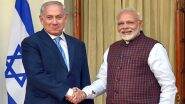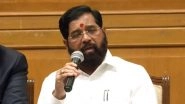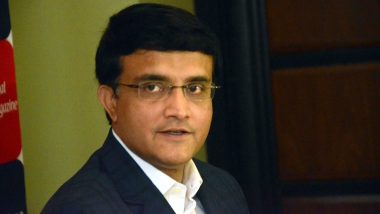Mumbai, October 23: Newly-elected BCCI president Sourav Ganguly on Wednesday expressed optimism that Bangladesh's tour of India will go ahead as planned as their Prime Minister Sheikh Hasina has "given her consent". The upcoming tour was on Monday thrown into jeopardy after their national team players refused to participate in any cricketing activity until their demands, including a hike in salary, are met. However, Ganguly has maintained that Bangladesh will turn up for the tour starting November 3. Sourav Ganguly on MS Dhoni’s Retirement, ‘Champions Do Not Finish Very Quickly’
"It's their internal matter. (But) the Bangladesh PM has said she will turn up for the Test in Kolkata. If she has given her consent, I don't see how the national team won't," Ganguly told reporters after taking charge of BCCI. The boycott plan was announced by the country's top players such as Test and T20 captain Shakib Al Hasan, Mahmudullah and Mushfiqur Rahim at a press conference in Dhaka. Nearly 50 players are part of the protest. According to a report in 'ESPNCricinfo', the players are likely to meet with Bangladesh Cricket Board (BCB) officials later on Wednesday. "After the media conference last evening, I spoke to a senior player who told me that they would get back to us at any time after discussing among themselves. We expect to sit with them at 5pm today," BCB CEO Nizamuddin Chowdhury said in a press briefing at noon. Virat Kohli Most Important Man of Indian Cricket, Will Support Him: BCCI president Sourav Ganguly
During the tour starting November 3, Bangladesh are scheduled to play three T20 Internationals and two Test matches as part of the World Championship. One of the major points raised by the players was better remuneration for those competing at the first-class level. In case Bangladesh forfeits, the ICC will award the Test series to India who will get 120 points. Some of the players' main demands are: Bangladesh Premier League (BPL) must go back to franchise model, Dhaka Premier League (their domestic first-class competition) must go back to open market transfers, central contract salary should be higher, and include more players, higher first-class match fees, players association to no longer have conflict of interest.













 Quickly
Quickly


